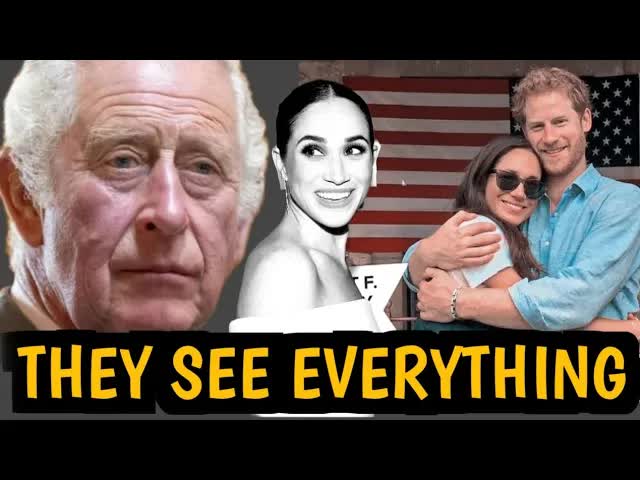In a world where royal scandals often capture headlines, the saga of Prince Harry and Meghan Markle continues to provoke discussion and debate.
Their decision to step back from royal duties and relocate to the United States has sparked a whirlwind of media scrutiny that seems unrelenting.
What is it about this couple that draws such intense attention, even from thousands of miles away?
Despite their attempts to carve out a new life, Harry and Meghan remain in the crosshairs of the British press.
Critics argue that the media’s obsession with them is driven by outdated notions of royal protocol and a refusal to adapt to contemporary sensibilities.
As the world evolves, should the monarchy not evolve with it?
The rigid expectations placed on royals—how they dress, how they interact, and even how they smile—seem increasingly archaic in today’s society.
One of the most troubling aspects of this ongoing drama is the lack of support for Meghan during her time of distress.
Many wonder why the royal family did not publicly defend her against the barrage of negative press.
Is it really too much to ask for a simple statement urging the media to cease their harassment?
This silence speaks volumes and raises questions about the values upheld by the monarchy.
The narrative surrounding Harry and Meghan often revolves around their love story, which some perceive as a threat to the traditional royal image.
Their marriage and subsequent family life seem to have ignited a firestorm of discontent among certain factions of the British public.
The question arises: what crime did they commit by choosing love over duty?
Why does their happiness seem to incite such animosity?
Interestingly, the British media’s focus on Harry and Meghan stands in stark contrast to the growing diversity within the UK government.
With a Prime Minister of Indian heritage and a cabinet filled with individuals of various backgrounds, one would expect a more inclusive narrative.
Yet, the relentless pursuit of Harry and Meghan continues, overshadowing significant progress in representation.
Despite relocating to the U.S. in search of peace, the couple finds themselves still under the media microscope.
Even after taking such drastic steps to distance themselves from the British tabloids, the harassment persists.
One must wonder: what drives this obsession?
Is it simply a thirst for scandal, or is there a deeper, more insidious motive at play?
Many observers are baffled by the media’s fixation on Meghan, especially when so many pressing issues demand attention.
The focus on a couple living overseas seems misplaced, particularly when one considers the challenges facing the UK today.
Shouldn’t the media be directing its energies toward matters that directly affect the populace rather than fixating on the lives of two individuals who have chosen a different path?
As King Charles III prepares for a visit to Kenya, some are questioning the sincerity of his intentions.
How can he genuinely connect with a nation predominantly comprised of black citizens when his own family has struggled to embrace diversity?
The hypocrisy of the monarchy’s stance on race and acceptance is being called into question, especially in light of the treatment of Meghan.
Social media is abuzz with reactions to this perceived double standard.
Many are voicing their frustrations and calling for accountability, not just for the monarchy but for the media as well.
The narrative surrounding Harry and Meghan has become a symbol of broader societal issues, including racism and the complexities of modern identity.
In the end, the ongoing saga of Harry and Meghan serves as a reminder of the challenges faced by those in the public eye.
Their story resonates with many who feel marginalized or misunderstood.
As the dialogue continues, it’s clear that this is more than just a royal tale; it’s a reflection of societal change and the struggle for acceptance in a world still grappling with its past.
As we watch this drama unfold, one can’t help but wonder: when will the media and the monarchy recognize the need for change?
When will they allow Harry and Meghan, and indeed all individuals, the space to live their lives free from undue scrutiny?
The answers to these questions may shape the future of the British monarchy and its relationship with the public.










